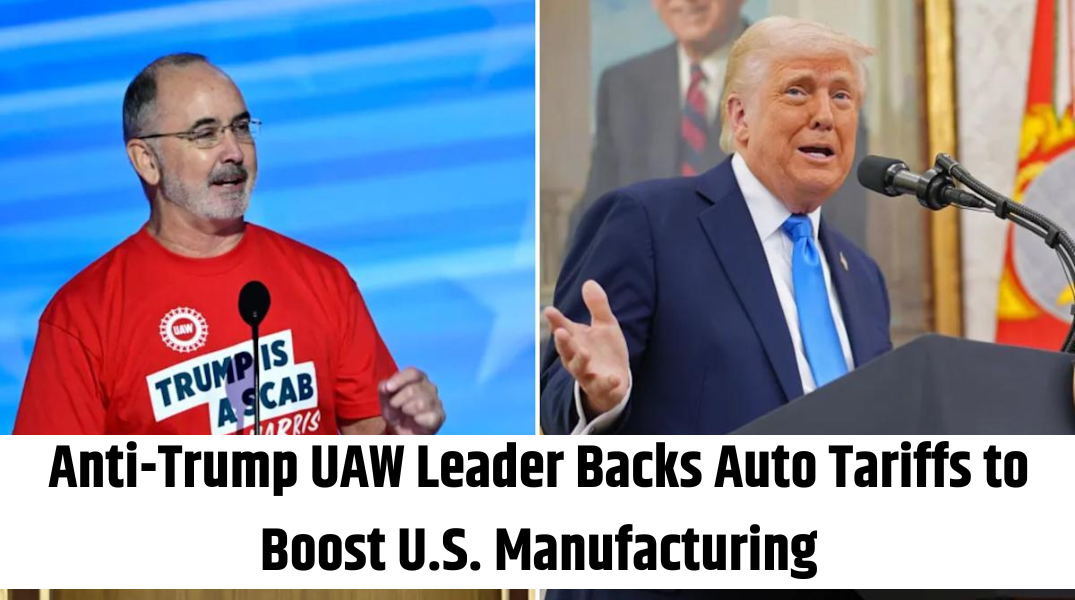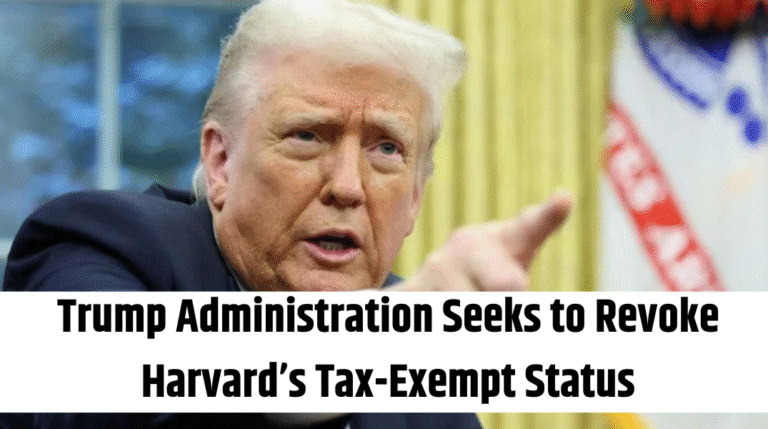
WASHINGTON, D.C. – United Auto Workers (UAW) President Shawn Fain acknowledged Sunday that former President Donald Trump’s upcoming 25% tariff on imported cars could have a significant impact on American manufacturing, potentially leading to a surge in domestic auto jobs.
Fain, who was a vocal critic of Trump during past elections, echoed the White House’s perspective on the tariffs, suggesting that automakers have the ability to relocate production back to the U.S. fairly quickly.
“There’s excess capacity at plants here,” Fain said on CBS’ Face the Nation. “Automakers could shift jobs back to the U.S. in short order.”
The tariffs, which take effect Wednesday, will also apply to automotive parts, affecting manufacturers in Canada, Mexico, Japan, South Korea, and Germany. Trump has justified the move as a way to bolster American industry and reduce reliance on foreign production.
Potential Impact on the Auto Industry
Fain acknowledged that tariffs could be an effective strategy for pressuring companies to prioritize U.S. workers.
Also Read – NYC Mayoral Candidate Brad Lander Mobbed by Climate Protesters at Forum
“Tariffs are a tool to get these corporations to do the right thing—invest in American workers and bring jobs back home,” he explained.
However, he also expressed concerns about where these jobs might end up.
“If these jobs are relocated to non-union states without opportunities for workers to organize, it won’t truly benefit the working class,” Fain warned.
Trump’s Expanding Tariff Strategy
Beyond the auto industry, Trump’s latest round of trade policies includes new tariffs on Canadian and Mexican imports, as well as reciprocal tariffs targeting trade with the European Union and Japan.
The White House has emphasized that tariffs on foreign-made vehicles could dramatically reshape the market. According to economic projections, a 25% tariff on vehicles imported from outside North America could:
-
Reduce foreign vehicle imports by nearly 74%
-
Increase the average price of vehicles in the U.S. by 5%
-
Boost profits from domestic auto production by over 5%
The impact on Canadian and Mexican imports is still uncertain, as tariffs will be adjusted based on the percentage of U.S.-made parts in each vehicle. A car containing 50% American-made parts would face a 12.5% tariff instead of the full 25%.
Broader Trade Measures and Political Reactions
Trump’s aggressive tariff strategy has extended beyond the auto industry. In recent months, he has:
-
Imposed a 25% tariff on Chinese imports, citing concerns over fentanyl smuggling
-
Raised tariffs on steel and aluminum without exemptions for major trading partners
-
Signaled possible tariffs on computer chips, pharmaceuticals, and copper
Critics argue these tariffs could drive up prices for consumers, potentially worsening inflation, while supporters claim they will revitalize American industries.
As the tariffs take effect, the auto industry, political leaders, and labor unions will be closely watching to see whether the policies truly bring jobs back to American factories—or create new economic challenges .




